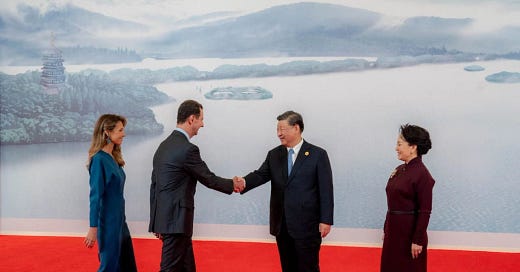West Asia looks East
Syria looks to China for political, cultural, & economic advance, China boosts Syria's economy, 400 projects signed at 6th China-Arab States Expo, Xi Jinping "new era in China-Arab relations"
UPDATE: Syrian President Bashar al-Assad said on 25 September during a meeting with Chinese Prime Minister Li Qiang that looking eastward is Syria’s “political, cultural, and economic guarantee.” The Chinese premier told Assad that Beijing aims to support development opportunities in Syria.
The dramatic diplomatic renaissance of Syrian leader Bashar al-…




